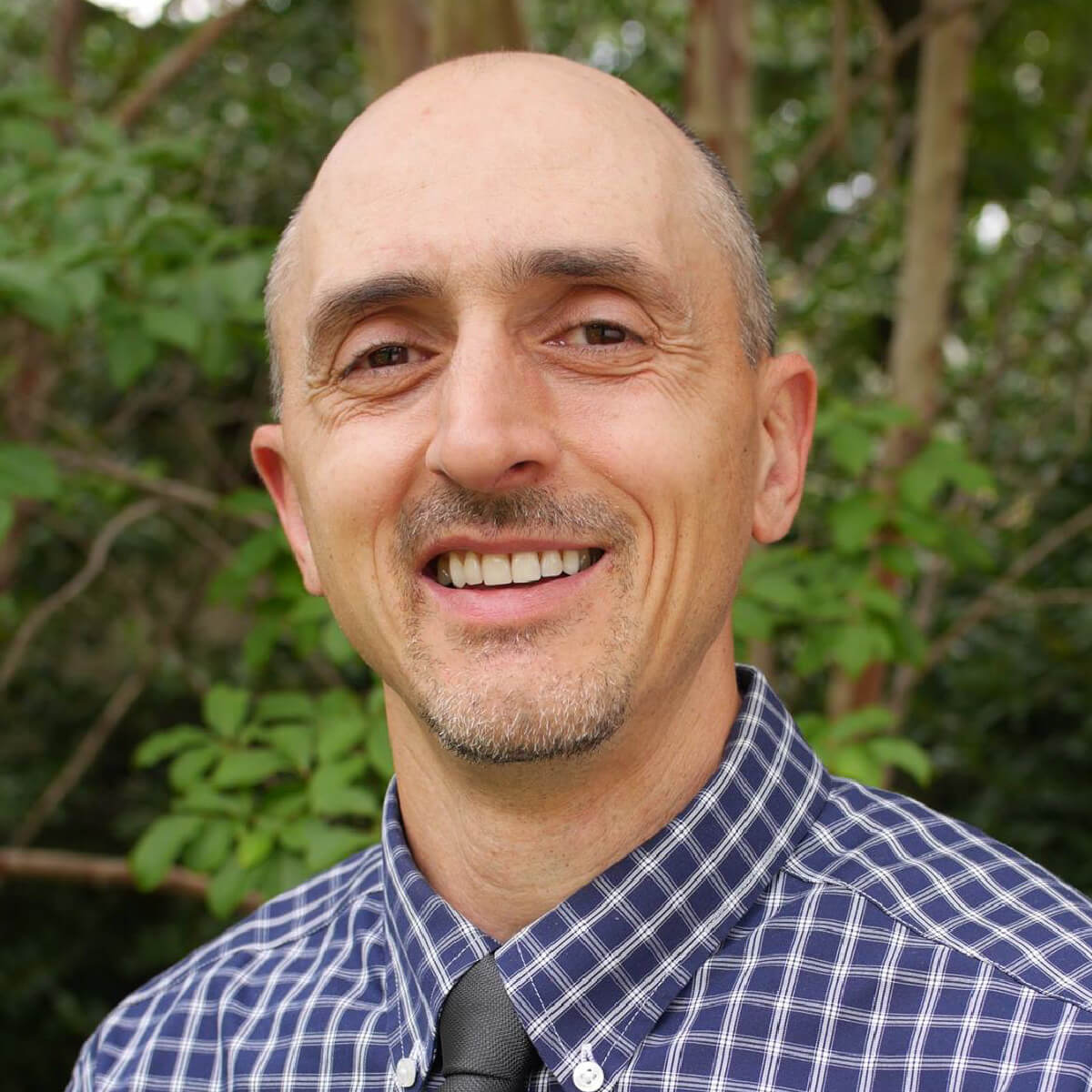Conversation with Jack Norris of Vegan Outreach

Jack Norris is the Executive Director of Vegan Outreach. He spoke with ACE Researcher Jacy Reese on September 15, 2016. This is a summary of their conversation.
Vegan Outreach’s Greatest Strengths and Weaknesses
Vegan Outreach (VO) still has a strong leafleting program. They’ve been doing it for a long time, so it’s a fairly efficient system. They’ve now expanded it to a number of countries: the U.S., Canada, Australia, New Zealand, India, and Mexico.
Their college leafleting program is their biggest expense. Every semester, they try to hit all the large schools at least once. They get to most of them once a semester, many of them twice a semester. In 2015, VO sent out 3.3 million leaflets and about 80% get reported as being handed out.
The vegan mentor program is starting to become a fairly large part of Vegan Outreach’s work. It started quite slowly in 2014; after about a year and a half, a full-time volunteer named Jean stepped in to start running the program and she really got it into shape. In 2016, the number of people who have been matched jumped from 600 to over 2,200. VO is hoping to automate the program’s matching process, though they will still need a human involved. Jean matches people in about ten minutes per pair, but with automation she thinks she could match people in 2-3 minutes per pair. Once the program is automated, VO can train other people to help run the program and they will be able to meet a much higher level of demand.
Another strength of VO is that they’re willing to try new things and fail at them if necessary, and then reassess and try other things. For example, it’s difficult to leaflet during certain times of the year. In January and February, many parts of the country are too cold. In May, most colleges close. So VO is starting to implement a humane education program during those months. They’re being trained by the Institute of Humane Education. All their Outreach Coordinators have went through weekly training, and are currently taking a 6-week online course from the institute.
VO does the best they can to study the effectiveness of their leaflets. One area of interest is whether showing videos is better than leafleting if other things are equal. They put a sticker on each leaflet that offers a gift certificate from Starbucks or Amazon for filling out a survey, and they’ve been experimenting to see which incentives work best. For their next study, they’re going to offer people a $5 gift certificate immediately to take a pre-test and a $10 certificate if they fill out the post-test later. They are currently deciding whether to invest in a control group or not.
While it’s difficult to prove the effects of leafleting through these studies, VO has a lot of anecdotal evidence of leafleting’s effects. The pre-test for their leafleting effectiveness study showed that the people who filled out the survey seemed to be affected by the literature fairly significantly. They had a very high rate of intentions to change their diet and sympathy for farmed animals.
Jack hopes that, in 10 years or so, leafleting will no longer be needed because cultured meat or plant-based alternatives will replace meat from animals and farmed animal advocacy will be a thing of the past. If that happens, VO will remain a pro-animal organization and likely move into other areas of animal protection. VO’s core goal will always be to prevent violence to animals.
VO is trying to make their Outreach Coordinator position more sustainable. In the past, their model has been to hire someone to just leaflet during the school year during the months when colleges are very busy. They pay a good hourly salary during that time, but then the Outreach Coordinator is usually not able to make money with Vegan Outreach at other times. This has led to a lot of burnout and people needing to leave for other organizations where they can get a full-time, year-round job. That’s another reason VO has been looking for other things for the Outreach Coordinators to do, such as virtual reality and humane education.
Accomplishments from the Past Year
VO’s accomplishments are similar each year: reaching as many people as they can with their leaflets and hopefully making a difference in their actions. The number of people reached doesn’t vary drastically from year to year, though they have gone up as VO has expanded to more countries.
VO hasn’t had earth-shattering developments other than their continual expansion to more countries. This year, VO hired a Canada Outreach Coordinator, so they hope to reach a lot of parts of Canada that we haven’t consistently in the past. Another development is that VO is going to get headsets from Animal Equality so that they can incorporate virtual reality into their outreach.
Community Engagement Initiative
VO has a new community engagement initiative. They’re trying to reach out to the black community right now, where they feel the movement has not made the inroads they would have hoped. They’re doing a tour of historically black colleges and universities (HBCUs). They have an African American Outreach Coordinator handing out literature, so hopefully no one will feel like there’s an outsider coming into their community.
Goals
VO aims to expand to one new country per year. They look for countries that are amenable to leafleting colleges, and then they have to figure out the logistics of doing it. They’re looking at doing a series of countries in Eastern Europe next. They’re talking to an organization there about creating a new series of leaflets for that. If VO had unlimited resources, they would expand much more quickly, but their budget seems to grow a little bit each year.
VO is hoping their mentoring program will expand from thousands to tens of thousands of participants in 2017.
VO is currently experimenting with a lot of new things, like their community engagement initiative. They’re working to figure out exactly how it will work and what will be scalable. They’re going to see how their new humane education program goes and if it’s something they’ll want to continue doing.
VO also started a campaigns program to get more vegan entrees at restaurants. They’re looking at trying to get them in airport restaurants especially, because right now there seems to be a need for that. They’ve been researching the companies that provide the grab-and-go products in airports and some of them have shown interest. Jack finds that a lot of people use the difficulty of traveling as an excuse to stop being vegan, so he feels that working with airports is important.
Need for Funding
VO had a better year in the last fiscal year than they expected, thankfully. Whether that will continue is very hard to predict. Their fundraiser in May and June, “Team Vegan,” raised $460,000. They’ve used those funds to hire more people, invest in infrastructure, and start their community engagement initiative.
Donors to VO are able to specify how they would like their funds to be used (or not to be used). VO could also use additional funding to expand to other countries much more quickly than they currently can.
In general, the more money VO has, the more liberal they can be with giving out literature, particularly for large events. They could also use funding to ship more leaflets. For example, they’ve been getting a lot of requests for leaflets from Canada lately, but they have to limit that because the shipping is so expensive. If there were donors out there who wanted to help VO with shipping to Canada, that could open up a lot more leafleting there.
Recent Changes
VO got rid of their Facebook ads program. It took a lot of tech-savviness, and VO feels that other groups are better equipped to do those ads. They’ve decided to merge two of their popular leaflets, “Your Choice” and “Compassionate Choices,” into one and add companion animals to it. That will save them about $5,000 per year. They also updated their “Why Vegan?” leaflet to have a more modern feel and less text and citations.
Criticism/FAQ
Why does VO ask people to go vegetarian or reduce their consumption of animal products rather than going completely vegan?
A lot of people argue that having a consistent message all the time that it’s wrong to exploit animals in any way would be better in the long-run, but VO has seen a lot of evidence that that’s not true. VO finds that people are very resistant to a pure vegan message at first. Telling people to go vegan or telling people they’re morally “wrong” or “bad” is relatively ineffective. When you tell a meat-eater “you’ve got to be vegan, and you have to care about minor ingredients,” they will respond by saying, “that’s ridiculous, I can’t do that, that’s too much to expect from me, so I don’t have to do anything.”
It is relatively more effective to tell people to try reducing their animal product intake and see how it goes, and then consider going vegan eventually. People seem to go through stages and VO tries to start them on the road towards vegetarianism and then veganism.
It does seem important that people eventually identify as vegetarians or vegans, because a lot of research has shown that people who identify stick with the diet longer and are more committed. Another reason there’s value in creating people who identify as vegans (rather than a possibly higher number of meat reducers) is that vegans become activists and spokespeople. They can do a lot more to affect other people. One’s own personal diet is a very tiny percentage of the difference one can make, compared to what one can do by persuading other people. For these reasons, VO continues to use the words “vegetarian” and “vegan” in their literature. VO’s vegan mentor program is also designed to create people who identify as vegans, and Jack does a lot of nutrition work to help people who are having problems or people who have questions.
Why does Vegan Outreach focus on individual outreach rather than corporate outreach?
From the start, VO’s philosophy has been to do the grassroots outreach in order to create more vegetarians and vegans, which will create more demand for institutional change. It has seemed as though there are more people willing to work on institutional change than there are people willing to get out and hand out booklets, which can be very tedious and physically more demanding. VO wanted to make sure the grassroots work was getting done. Without the growing amount of vegetarians and vegans, corporate outreach isn’t going to succeed.
VO feels that creating more vegetarians and vegans affects more than just farmed animals. It can also help all animals across the board. Once someone becomes vegetarian or vegan for ethical reasons, they will naturally be more supportive of all other pro-animal issues.
Some would argue that the development of animal-free foods will be the key turning point for ending animal farming. Does Vegan Outreach hope to play a role in facilitating these technologies?
There’s already a lot of interest in cultured meat from people who know a lot about it and are getting the funding for it, so Vegan Outreach does not intend to get into that area. They will continue to do outreach and leave the development of cultured meat to the experts. Jack does not think we should put all of our resources into cultured meat, in case it doesn’t work out for some reason. Once cultured meat becomes viable, VO will do what they can to make sure that it succeeds by promoting it to the public as an option.
About Erika Alonso
Erika is ACE's Project Manager and has been with ACE since 2014. Her work includes researching effective messaging for animal advocacy groups, and how to engage activists through digital media.
ACE is dedicated to creating a world where all animals can thrive, regardless of their species. We take the guesswork out of supporting animal advocacy by directing funds toward the most impactful charities and programs, based on evidence and research.
Join our newsletter




